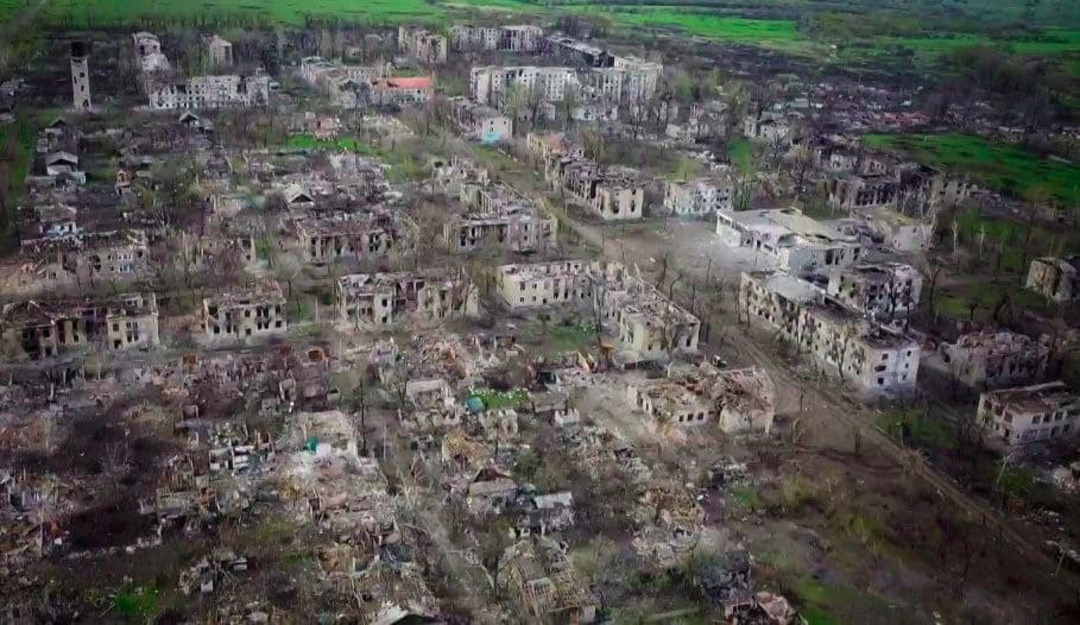-
Money for Ukraine to top G7 agenda; inflation, food a concern

G7 financial leaders are likely to focus on Thursday and Friday (May 19-20) on how to help Ukraine pay its bills, with reconstruction after the war, surging global inflation, climate change, supply chains and the impending food crisis also high on the agenda.
Finance ministers and central bank governors of the United States, Japan, Canada, Britain, Germany, France and Italy - the G7 - will hold talks as Ukraine, invaded by Russia on Feb. 24, is struggling to fend off the attack.
A G7 official, who asked not to be named, said: "Ukraine is overshadowing these meetings. But there are other issues that must be discussed." He added that the debt, international taxation, climate change and global health were all up for debate.
Ukraine estimates its financial needs at $5 billion a month to keep public employees' salaries paid and the administration working despite the daily destruction wrought by Russia.

The short-term financing package to be agreed by the G7 would cover three months of Ukraine's needs.
The European Commission offered on Wednesday to provide up to 9 billion euros ($9.44 billion) in loans to Ukraine, financed from EU borrowing guaranteed by EU governments, to cover Kyiv's needs until the end of June.
Britain and France urge allies to keep backing Ukraine, put pressure on Putin
The Commission also proposed to set up a fund of unspecified size of grants and loans for Ukraine, possibly jointly borrowed by the EU, to pay for the reconstruction of the country after the war ends.
Some economists estimate the financial need for such a project to be between 500 billion euros and 2 trillion euros ($524 billion to $2.09 trillion), with estimates frequently changing depending on the length of the conflict and the scope of destruction.
Russian gymnast Ivan Kuliak banned for wearing pro-war symbol
With sums of that magnitude coming into play, the EU is considering not only a new joint borrowing project, modelled on the pandemic recovery fund, but also the confiscation of the now frozen Russian assets in the EU, as sources of financing.
Some countries like Germany, however, say that the idea, though politically interesting, would be on shaky legal grounds.
U.S. officials emphasise it is too soon to map out financing for a massive rebuilding plan for Ukraine. Washington wants the discussions to focus on meeting Kyiv's immediate budget needs over the next three months.
UK open to international criminal tribunal to hold Putin accountable for war
A U.S. Treasury official said: "After all, these rebuilding needs are mostly a bit in the future. This is why we're focused more on the budget needs of Ukraine in the next three months than about reconstruction, Marshall Plans and asset confiscation."
Source: anews
You May Also Like
Popular Posts
Caricature
BENEFIT Sponsors BuildHer...
- April 23, 2025
BENEFIT, the Kingdom’s innovator and leading company in Fintech and electronic financial transactions service, has sponsored the BuildHer CityHack 2025 Hackathon, a two-day event spearheaded by the College of Engineering and Technology at the Royal University for Women (RUW).
Aimed at secondary school students, the event brought together a distinguished group of academic professionals and technology experts to mentor and inspire young participants.
More than 100 high school students from across the Kingdom of Bahrain took part in the hackathon, which featured an intensive programme of training workshops and hands-on sessions. These activities were tailored to enhance participants’ critical thinking, collaborative problem-solving, and team-building capabilities, while also encouraging the development of practical and sustainable solutions to contemporary challenges using modern technological tools.
BENEFIT’s Chief Executive Mr. Abdulwahed AlJanahi, commented: “Our support for this educational hackathon reflects our long-term strategic vision to nurture the talents of emerging national youth and empower the next generation of accomplished female leaders in technology. By fostering creativity and innovation, we aim to contribute meaningfully to Bahrain’s comprehensive development goals and align with the aspirations outlined in the Kingdom’s Vision 2030—an ambition in which BENEFIT plays a central role.”
Professor Riyadh Yousif Hamzah, President of the Royal University for Women, commented: “This initiative reflects our commitment to advancing women in STEM fields. We're cultivating a generation of creative, solution-driven female leaders who will drive national development. Our partnership with BENEFIT exemplifies the powerful synergy between academia and private sector in supporting educational innovation.”
Hanan Abdulla Hasan, Senior Manager, PR & Communication at BENEFIT, said: “We are honoured to collaborate with RUW in supporting this remarkable technology-focused event. It highlights our commitment to social responsibility, and our ongoing efforts to enhance the digital and innovation capabilities of young Bahraini women and foster their ability to harness technological tools in the service of a smarter, more sustainable future.”
For his part, Dr. Humam ElAgha, Acting Dean of the College of Engineering and Technology at the University, said: “BuildHer CityHack 2025 embodies our hands-on approach to education. By tackling real-world problems through creative thinking and sustainable solutions, we're preparing women to thrive in the knowledge economy – a cornerstone of the University's vision.”
opinion
Report
ads
Newsletter
Subscribe to our mailing list to get the new updates!






















